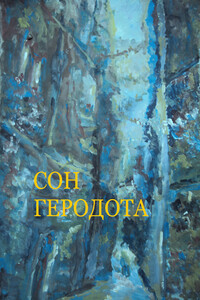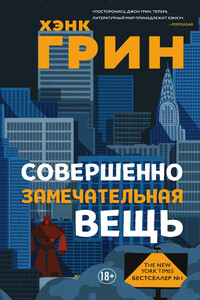36 Arguments for the Existence of God - [4]
Of course, notoriety presents its own challenges. Last week, a girl had shown up after one of his lectures with a copy of his book and asked him if he “signed body parts.” Before he could find his voice or gain control over the blush spreading beyond his high hairline, she rolled up her sweater and offered him the heartbreaking baby innocence of her tender inner arm. Not knowing what else to do, wishing the present moment to become the past as quickly as possible, he had mutilated the butterfly softness in the tiniest spider scrawl he could manage.
“It must be that Seltzer boyishness I keep reading about,” Auerbach had said, laughing, when Cass had told him about it, wanting his reassurance that this sort of thing was within the bounds of the normal, that it didn’t transgress an academic’s sacred trust to the impressionable young. “Stop worrying and start enjoying. Anyway, why isn’t it a good thing if a guy like Cass Seltzer becomes a cult figure? Why not you rather than a Scientologist moron like Tom Cruise? Think about it, Seltzer.”
Seltzer is still thinking.
This boyishness of his: before this year, that quality listed awkwardly in the direction of a handicap, socially and professionally, not to speak of romantically. Not that there had been any romances to speak of during that long cold February of the soul that had arced from the day six years ago when Pascale regained her speech and announced the end of their marriage until that day two and a half years ago, when Lucinda Mandelbaum had sat down next to him at the first Friday-afternoon Psychology Outside Speaker lecture of the new fall semester. But now, under the transfiguration of his fame, even his boyishness has become charmed. He’s no boy (forty-two), but he has got boyish looks and boyish ways, of which he used to be boyishly unaware, until he read himself described as “boyish” in several newspapers, magazines, and blogs too many. So now when he goes bounding across some stage, his hair flapping a bit round his ears in time with his eager strides, somewhere in the recesses of his mind he knows that this is boyish, and that this is good.
He knows now, too, from the profiles, that though he’s a tall and lanky man-well, of course, that he knew-he carries himself as if he weren’t, as if, as one of the features had put it, “he’s almost apologetic to be taking up so much vertical space.” It’s actually less embarrassing to read these personal descriptions of himself than he would have imagined. It’s hard to take the person featured in these articles seriously as the Cass Seltzer that he’s known all his life.
Cass is still trying to assimilate the fact that his book has become an international sensation, translated into twenty-seven languages, including Latvian. He understands that it’s not just a matter of what he’s written-as much as he’d like to believe it is-but also a matter of the rare intersection of the preoccupations of his lifetime with the turmoil of the age. When Cass, in all the safety of his obscurity, set about writing a book that would explain how irrelevant the belief in God can be to religious experience-so irrelevant that the emotional structure of religious experiences can be transplanted to completely godless contexts with little of the impact lost-and when he had also, almost as an afterthought, included as an appendix thirty-six arguments for the existence of God, with rebuttals, his claim being that the most thorough demolition of these arguments would make little difference to the felt qualities of religious experience, he’d had no idea of the massive response his efforts would provoke.
He would never have dubbed himself an atheist in the first place, not because he believes-he certainly doesn’t-but because he believes that belief is beside the point. It’s the Appendix that’s pushed him into the role of atheism’s spokesperson, a literary afterthought that has remade his life.
Tomorrow morning, he will meet with Shimmy Baumzer, the president of Frankfurter University, who will affect his I’m-just-a-hick-from-a-kibbutz demeanor, the better to cover up just how masterful an operator he is.
“What do I have to offer you to keep you from deserting us for those shmendriks up the river?” Cass knows that Baumzer will say to him, because that’s what he had said to Cass’s former colleague Marty Huffer, now at Harvard, three years ago, when Huffer’s research on the psychology of happiness had hit the big time in a book that a mainstream publisher had brought out to a sizable audience and which had been Huffer’s ticket out of Frankfurter.
It was Huffer’s editor to whom Cass had originally sent the manuscript of The Varieties of Religious Illusion. Cass knew his name from Huffer’s endless regaling of his former colleagues with tales from the life now lived far above their heads. The editor had called six weeks after Cass had sent the manuscript to him, just at the point when Cass was considering which university press to send it to next, and had invited him to lunch in New York. Over grilled branzini, he had allowed that Cass’s approach was interesting, “especially the Appendix. I liked it. It’s more provocative than the rest of the book. I don’t suppose you could switch it around and make the Appendix the book and the book the Appendix, could you?” While Cass was still gaping, the editor had named his figure.

Как найти свою Шамбалу?.. Эта книга – роман-размышление о смысле жизни и пособие для тех, кто хочет обрести внутри себя мир добра и любви. В историю швейцарского бизнесмена Штефана, приехавшего в Россию, гармонично вплетается повествование о деде Штефана, Георге, который в свое время покинул Германию и нашел новую родину на Алтае. В жизни героев романа происходят пугающие события, которые в то же время вынуждают их посмотреть на окружающий мир по-новому и переосмыслить библейскую мудрость-притчу о «тесных и широких вратах».

«Отранто» — второй роман итальянского писателя Роберто Котронео, с которым мы знакомим российского читателя. «Отранто» — книга о снах и о свершении предначертаний. Ее главный герой — свет. Это свет северных и южных краев, светотень Рембрандта и тени от замка и стен средневекового города. Голландская художница приезжает в Отранто, самый восточный город Италии, чтобы принять участие в реставрации грандиозной напольной мозаики кафедрального собора. Постепенно она начинает понимать, что ее появление здесь предопределено таинственной историей, нити которой тянутся из глубины веков, образуя неожиданные и загадочные переплетения. Смысл этих переплетений проясняется только к концу повествования об истине и случайности, о святости и неизбежности.

Давным-давно, в десятом выпускном классе СШ № 3 города Полтавы, сложилось у Маши Старожицкой такое стихотворение: «А если встречи, споры, ссоры, Короче, все предрешено, И мы — случайные актеры Еще неснятого кино, Где на экране наши судьбы, Уже сплетенные в века. Эй, режиссер! Не надо дублей — Я буду без черновика...». Девочка, собравшаяся в родную столицу на факультет журналистики КГУ, действительно переживала, точно ли выбрала профессию. Но тогда показались Машке эти строки как бы чужими: говорить о волнениях момента составления жизненного сценария следовало бы какими-то другими, не «киношными» словами, лексикой небожителей.

Действие в произведении происходит на берегу Черного моря в античном городе Фазиси, куда приезжает путешественник и будущий историк Геродот и где с ним происходят дивные истории. Прежде всего он обнаруживает, что попал в город, где странным образом исчезло время и где бок-о-бок живут люди разных поколений и даже эпох: аргонавт Язон и французский император Наполеон, Сизиф и римский поэт Овидий. В этом мире все, как обычно, кроме того, что отсутствует само время. В городе он знакомится с рукописями местного рассказчика Диомеда, в которых обнаруживает не менее дивные истории.

Эйприл Мэй подрабатывает дизайнером, чтобы оплатить учебу в художественной школе Нью-Йорка. Однажды ночью, возвращаясь домой, она натыкается на огромную странную статую, похожую на робота в самурайских доспехах. Раньше ее здесь не было, и Эйприл решает разместить в сети видеоролик со статуей, которую в шутку назвала Карлом. А уже на следующий день девушка оказывается в центре внимания: миллионы просмотров, лайков и сообщений в социальных сетях. В одночасье Эйприл становится популярной и богатой, теперь ей не надо сводить концы с концами.

Сказки, сказки, в них и радость, и добро, которое побеждает зло, и вера в светлое завтра, которое наступит, если в него очень сильно верить. Добрая сказка, как лучик солнца, освещает нам мир своим неповторимым светом. Откройте окно, впустите его в свой дом.